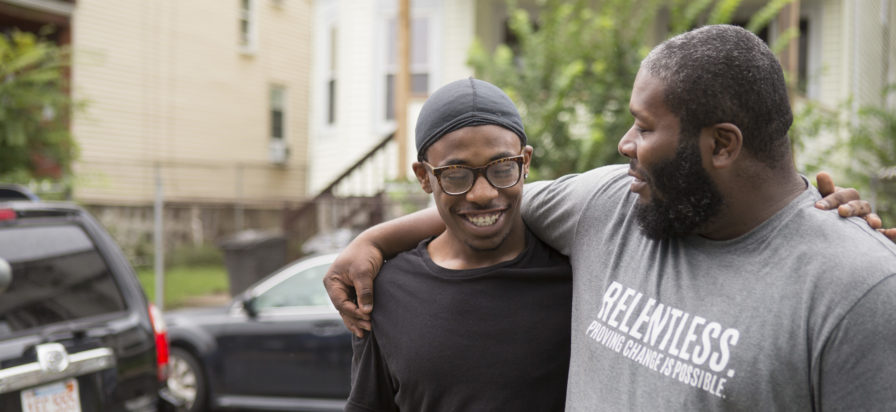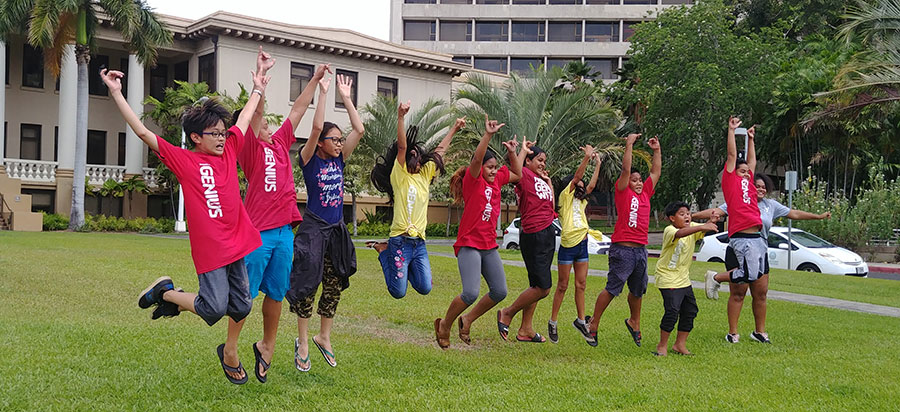Project Snapshot
Roca’s Intervention Model is designed to help high-risk young men leave streets and gangs, develop trusting relationships with caring adults, and gain employment. Through relentless outreach, tailored programming, and collaboration with community partners, Roca helps young men transform their lives.
With a record of outstanding results, Roca’s methods and competencies are in high demand from communities across the U.S. and around the world, including police departments hoping to learn from their model, but its intensive model is difficult to replicate.
Based on BellXcel’s successful transition from direct service provider to partner capacity building, Roca hired SCRI, an affiliate of BellXcel, to develop a new service delivery model to equip other nonprofits, police departments, and government agencies to deliver its core programming. This ongoing work is giving new life to Roca’s expertise while contributing to the organization’s long-term sustainability.
What we didn’t expect: In the midst of the COVID-19 pandemic, everyone is in a position to change the way they deliver services. As a result, this case study captures lessons that may be transferable to many contexts.
The Backstory
Roca is dedicated to moving the needle on urban violence by working relentlessly with young people at the center of the violence. Roca engages this specific population in an intensive four-year program to address trauma, teach life-saving cognitive-behavioral skills, and break the cycle of incarceration and poverty that traditional youth programs alone can’t break. Roca also helps institutions like police, probation, and parole change the way they work with young people who are traumatized and full of fear. Each year, Roca works directly with more than 1,300 young people ages 16-24, in Massachusetts and Baltimore, Maryland. The impact of this work speaks for itself: 97 percent of graduates stay out of jail and more than 64 percent hold down jobs for one year or more.
That kind of success doesn’t go unnoticed.
“People were pounding down our door wanting to open a Roca site,” said Roca’s founder and CEO, Molly Baldwin.
But it’s not that simple. Like all effective programs in the social sector, Roca’s “wins” are the result of highly trained and dedicated staff and years of learning while doing. Roca’s intervention model is intensive, requiring a long-term commitment and constant connection among staff and participants. To be successful, programming must be tailored to a local context and led by local experts.
Still, the unmet demand for programs like Roca’s led the organization to evaluate expansion models. First, Roca replicated its program in a new city. While successful, the effort required was too intensive to be a strategy for scaling nationally or internationally. Next, Roca piloted a leadership institute, offering organizations coaching for two hours monthly over a one-year period. In the end, that level of capacity building wasn’t robust enough.
Roca needed less than replication but more than a training institute.

In service of this goal, Roca hired SCRI to develop and support implementation of an optimal strategy for expanding its reach and impact beyond the communities where it provides direct service. Known as The Roca Impact Institute, this new strategy includes a combination of training, intensive coaching, facilitated planning, and shadowing/observations facilitated through long-term partnerships with other direct service providers.
The initial two-year pilot (2019-2021) is designed to meet the following goals:
- Increased reach: Increase the number of highest-risk youth served
- Improved quality: Increase the quality of highest-risk youth experiences with engaged institutions
- Systemic change: Systemic change in communities resulting in strengthened partnerships between police and community-based organizations, and more and better experiences for highest-risk youth
Our Approach
SCRI led a series of strategic planning activities to ensure The Roca Impact Institute was aligned with Roca’s mission, maximized its sector value, and strengthened organizational health. The COVID-19 pandemic hit in the middle of this ongoing work. Read on to learn how we shifted course together.
Finding the Right Direct Service Partners
Organizations regularly approach Roca for guidance in implementing its successful programs, so there was no shortage of partner options. However, Roca knew it was important to find partners with common mission, culture, and values that would not require “convincing” to adopt and commit to its signature strategies.
To find the right partners, SCRI created a “Partnership Readiness Assessment” with high, moderate, and low readiness rubrics based on key indicators in mission, culture, and mindset. Rubrics also assessed partner capacity through the lens of start-up costs and sustainable, long-term support for program quality and growth. Roca piloted the readiness assessment to identify and align partners to various training and coaching pathways.
Updating, Sequencing, and Packaging Content for Distance Learning
Through more than 30 years in operation, Roca has developed a substantial supply of proprietary content and materials that form the basis for its intervention model. To prepare the organization for formalized capacity-building work with external partners, SCRI collaborated with Roca to review, update, organize and sequence content and recommend the ideal method of delivery for each topic. This process also allowed SCRI to identify Roca’s unique value proposition in their core areas of expertise – which include Cognitive Behavioral Therapy, Engaged Institutions, Safety, Outreach and Transformational Relationships, Theory of Change and Peacemaking Circles.
At the onset of the project, SCRI and Roca intended to offer various options to partners interested in adopting Roca’s successful strategies and practices. When the COVID-19 crisis struck, Roca’s immediate priority was to ensure that it could still support its partners in providing services to the highest-risk youth who are especially vulnerable during the pandemic.
To meet the moment, the project goals quickly shifted to focus on the launch of a virtual train-the-trainer (TTT) institute focused on Roca’s signature Cognitive Behavioral Therapy (CBT) program. SCRI helped Roca transition their internal CBT program manual and curriculum into a framework that could be delivered in person or remotely to organizations at a variety of experience levels. The framework articulated clear objectives and included an externally-facing syllabus, aligned training and coaching milestones and tools, and pre/post assessments.
The virtual approach, known as Rewire by Roca: CBT Skills for Living, is 10 weeks of distance-learning coupled with strategic coaching sessions to support partners in practicing, integrating, and supervising the implementation of CBT strategies with staff.
SCRI helped Roca establish overall objectives and considerations for distance coaching, determining how to facilitate engagement and collaboration in a remote environment. SCRI also developed the necessary framework and tools to support the launch of Rewire: CBT Skills for Living, including TTT virtual guidelines, guidelines for stakeholder roles and responsibilities, and a pre/post assessment for participants to evaluate efficacy and impact.
Finally, SCRI advised Roca on an appropriate cost model for Rewire: CBT Skills for Living and for The Roca Impact Institute’s broader capacity-building work, based on projected staff effort and numbers of participants. We recommended a cost-per-participating organization that would allow Roca to recoup its time and reinvest in its capacity-building work.
What’s Next
Given the ongoing nature of COVID-19 and uncertainty around reopening, Roca continues to partner with SCRI to create frameworks for the virtual implementation of each of The Roca Impact Institute’s coaching partnership pathways, following the Rewire: CBT Skills for Living model.
SCRI is also supporting the development of a continuous improvement framework to guide each of The Roca Impact Institute’s pathways. This includes identifying key indicators of quality for knowledge transfer and implementation, as well as the corresponding measurement tools.




